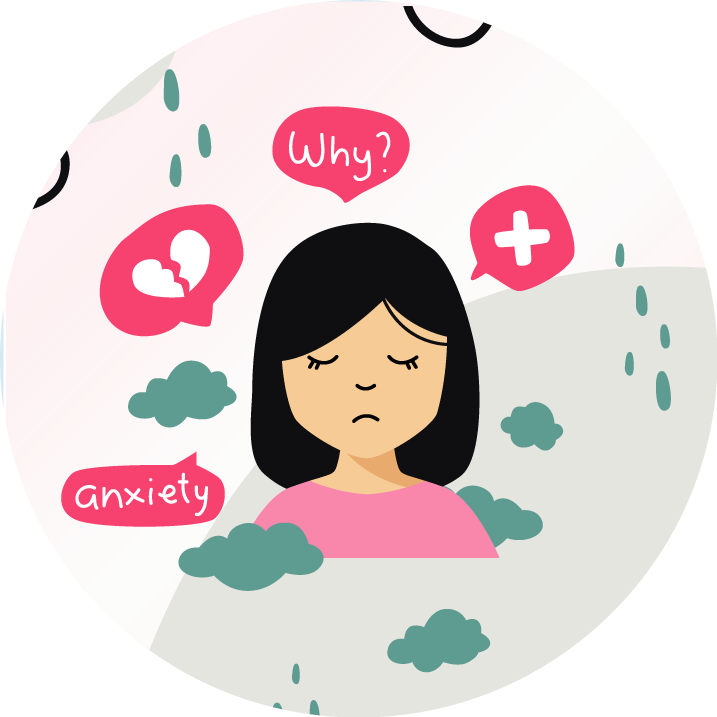Need for Psychological Assessment of Children

Need for Psychological Assessment of Children
April 07 2025 TalktoAngel 0 comments 1064 Views
Childhood is a crucial stage of development where children learn, grow, and develop emotionally, socially, and cognitively. However, many children face challenges that can affect their mental well-being, behavior, and academic performance. Psychological assessments play a vital role in identifying these challenges and providing the right support through counseling. In this blog, we will explore the importance of psychological assessment in children and how it benefits their counseling process.
What is Psychological Assessment?
Psychological assessment is a process of evaluating a child's cognitive, emotional, behavioral, and social functioning using standardized tests, observations, and interviews. It helps top psychologists and counselors understand a child's strengths, weaknesses, and areas requiring intervention. Assessments can be used for various purposes, including diagnosing learning disabilities, behavioral disorders, emotional distress, and developmental delays.
Why is Psychological Assessment Important in Counseling?
1. Early Identification of Mental Health Issues
Children may struggle with anxiety, depression, attention-deficit/hyperactivity disorder (ADHD), autism spectrum disorder (ASD), specific learning disorder (SLD), or learning difficulties. Early identification through psychological assessments helps in addressing these concerns before they impact a child's well-being and future. When issues are detected early, interventions can be applied to help children manage their emotions, develop coping skills, and receive the necessary therapy or academic support. Early assessment reduces the chances of problems escalating into adulthood.
2. Understanding Emotional and Behavioral Issues
Children often express emotions differently from adults. Psychological assessments help in understanding the root causes of behaviors such as anger issues, withdrawal, low self-esteem, or excessive fears. These insights allow counselors to provide personalized support and therapy. Many children who struggle with emotional regulation may be misinterpreted as having discipline problems, but an assessment helps to uncover the true psychological needs behind their behavior. This allows parents, teachers, and counselors to work collaboratively in helping the child.
3. Improving Academic Performance
Many children face learning difficulties that can hinder their academic success. Psychological assessments identify learning disabilities such as dyslexia, dyscalculia, or processing disorders. With this information, schools and parents can implement strategies to support the child's learning. Understanding a child’s learning style through assessment allows teachers to modify their teaching methods to better suit the child’s needs. Additionally, individualized education plans (IEPs) can be created for children who require special education services.
4. Enhancing Social and Communication Skills
Children with difficulties in social interactions, such as those with autism or social anxiety, benefit from assessments that highlight areas needing improvement. Counselors can then work on developing their communication and interpersonal skills. Social skills are crucial for a child's overall development, and psychological assessments help determine where a child may be struggling, whether it's understanding social cues, maintaining conversations, or building friendships. This information allows for targeted social skills training and therapy.
5. Guiding Parents and Educators
Assessments provide valuable information to parents and teachers about a child's mental and emotional health. This enables them to adopt suitable parenting techniques, teaching strategies, and support systems for the child’s holistic development. Parents may sometimes struggle to understand their child’s emotions or behavior, and psychological assessments give them insights into their child’s mental health needs. Educators can also use assessment results to create an inclusive and supportive learning environment for children with special needs.
Types of Psychological Assessments Used for Children
- Cognitive Assessments – Measure intellectual abilities, problem-solving skills, and reasoning. Example: Wechsler Intelligence Scale for Children (WISC-V).
- Behavioral Assessments – Identify behavioral patterns, hyperactivity, or aggression. Example: Child Behavior Checklist (CBCL).
- Emotional Assessments – Evaluate emotional well-being, anxiety, and mood disorders. Example: Children’s Depression Inventory (CDI).
- Neurodevelopmental Assessments – Assess developmental disorders like ADHD and autism. Example: Autism Diagnostic Observation Schedule (ADOS).
- Achievement Tests – Measure academic skills and learning difficulties. Example: Wide Range Achievement Test (WRAT).
- Projective Tests – Analyze subconscious thoughts and emotions. Example: Rorschach Inkblot Test.
How Psychological Assessments Help in Counseling
1. Personalized Therapy Plans
Psychological assessments provide detailed insights into a child's needs, allowing counselors to create personalized intervention plans tailored to the child’s specific challenges. Each child is unique, and assessments help in developing individualized approaches that work best for them. Whether it's cognitive-behavioral therapy, play therapy, ABA therapy, Speech therapy, or social skills training, having accurate assessment data ensures that counseling is effective.
2. Monitoring Progress
Counselors use assessments to track a child's progress over time, adjusting treatment plans when necessary. This ensures that the interventions remain effective. If a child is undergoing therapy for anxiety or behavioral issues, regular assessments help determine whether the strategies being used are working or if modifications are needed.
3. Reducing Stigma and Misconceptions
Parents and teachers may misunderstand a child's behavior, labeling them as ‘naughty’ or ‘lazy.’ Assessments clarify underlying psychological factors, promoting a supportive and understanding approach. This reduces the stigma surrounding mental health and allows children to receive the help they need without fear of judgment.
4. Enhancing Self-Esteem and Coping Strategies
By identifying strengths and challenges, children receive guidance on developing positive coping mechanisms, improving self-confidence, and managing emotions effectively. Many children with undiagnosed learning difficulties or mental health issues struggle with low self-esteem, as they may feel they are not good enough. Psychological assessments help in addressing these concerns and boosting their confidence.
Challenges in Conducting Psychological Assessments
- Lack of Awareness – Many parents and educators are unaware of the benefits of psychological assessments, leading to delayed intervention.
- Stigma Around Mental Health – Some parents fear that their child will be labeled if assessed, preventing them from seeking help.
- Limited Resources – Schools and communities may lack access to trained psychologists and standardized tests.
- Financial Constraints – Psychological assessments can be costly, making it difficult for some families to afford them.
- Reluctance from Children – Some children may be uncooperative during the assessment process, making it challenging to obtain accurate results. Building a rapport with the child is essential for successful assessments.
Conclusion
Psychological assessment is a crucial tool in child counseling. It helps in identifying mental health issues, understanding behavioral patterns, and providing the right interventions for a child’s development. When parents, educators, and counselors work together using these assessments, they can create a positive and nurturing environment for children to thrive. Early intervention through assessments can make a significant difference in shaping a child's future, ensuring they receive the support they need for a happy and healthy life. Investing in psychological assessments through TalktoAngel means investing in a child’s future, helping them navigate challenges with confidence and resilience.
Contributed by: Dr (Prof.) R K Suri, Clinical Psychologist & Life Coach, & Ms. Sakshi Dhankhar, Counselling Psychologist
References
- American Psychological Association (APA). (2020). Psychological Testing and Assessment. Retrieved from www.apa.org
- World Health Organization (WHO). (2021). Mental Health of Children and Adolescents. Retrieved from www.who.int
- National Institute of Mental Health (NIMH). (2022). Understanding Child Development and Mental Health. Retrieved from www.nimh.nih.gov
Leave a Comment:
Related Post
Categories
Related Quote

“If I wait for someone else to validate my existence, it will mean that I’m shortchanging myself.” - Zanele Muholi

"The meeting of two personalities is like the contact of two chemical substances: if there is any reaction, both are transformed." - Carl Jung

“Treat a man as he is and he will remain as he is. Treat a man as he can and should be and he will become as he can and should be.” - Stephen R

“Remember: the time you feel lonely is the time you most need to be by yourself. Life's cruelest irony.” - Douglas Coupland

“Anxiety is a thin stream of fear trickling through the mind. If encouraged, it cuts a channel into which all other thoughts are drained.” - Arthur Somers Roche

"It is okay to have depression, it is okay to have anxiety and it is okay to have an adjustment disorder. We need to improve the conversation. We all have mental health in the same way we all have physical health." - Prince Harry
Best Therapists In India






























SHARE